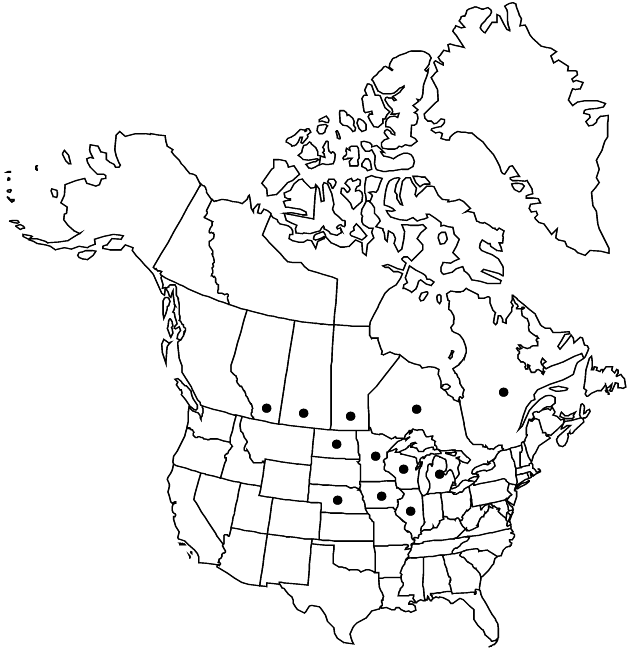Difference between revisions of "Doellingeria umbellata var. pubens"
in N. L. Britton and A. Brown, Ill. Fl. N. U.S. 3: 392. 1898.
Common names: Aster pubescent
Basionym: Aster umbellatus var. pubens A. Gray in A. Gray et al., Syn. Fl. N. Amer. 1(2): 197. 1884
Synonyms: Aster pubentior Cronquist Doellingeria pubens (A. Gray) Rydberg Doellingeria umbellata subsp. pubens (A. Gray) Á. Löve & D. Löve
Treatment appears in FNA Volume 20. Treatment on page 44.
FNA>Volume Importer |
FNA>Volume Importer |
(No difference)
| |
Revision as of 18:43, 24 September 2019
Plants 50–120 cm. Leaves densely puberulent (more than 12 hairs/mm2), abaxially moderately to densely canescent (indument often dense over entire plant). Phyllaries sparsely piloso-villous, sometimes more densely apically. 2n = 18.
Phenology: Flowering late summer–fall.
Habitat: Moist soils, clearings, thickets, margins of forests and near streams, prairies
Elevation: 100–500(–700) m
Distribution

Alta., Man., Ont., Que., Sask., Ill., Iowa, Mich., Minn., Nebr., N.Dak., Wis.
Discussion
Disjunct populations of var. pubens are found in Alberta. The indument is often dense over the entire plant. The leaves are moderately to densely canescent abaxially.
Selected References
None.
Lower Taxa
None.